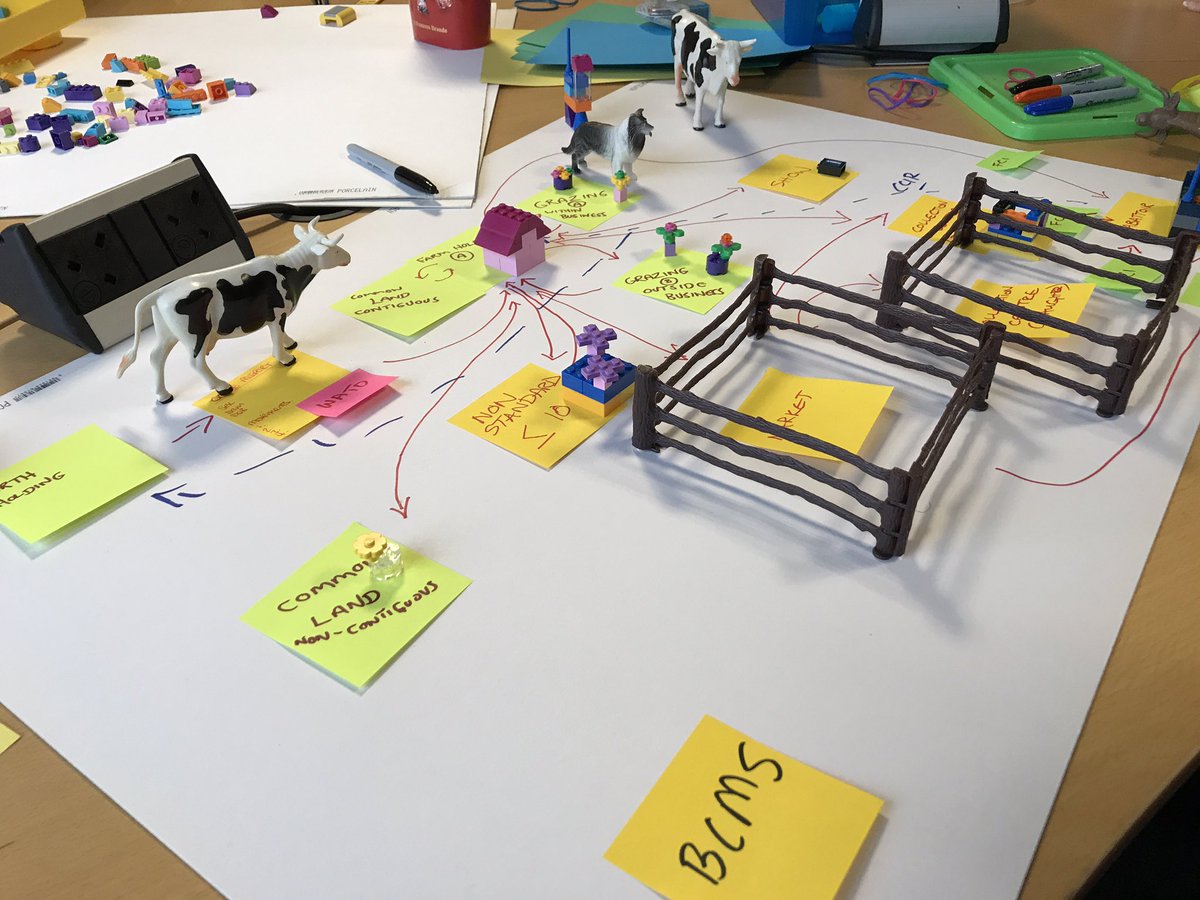On Monday 13 November, the Defra Livestock Information Programme Traceability Design User Group (TDUG) met with Lord Gardiner and other senior Defra officials at the Defra office in Nobel House.
TDUG includes key influencers from across government and industry who work with or in the meat and livestock sectors. The group is directly engaged with the design of a future livestock traceability service and as such the room was full to bursting with Chief Execs and other leaders.
The purpose of the group is to co-create a livestock traceability service that will deliver positive productivity, trade and animal health related outcomes. This approach is seen as the best way to develop a service that works for people and that will deliver win-win solutions.

Lord Gardiner said: “I warmly welcome the development of a new livestock traceability service which is surely a force for good whichever way one looks at it. I have heard a compelling narrative today from both industry and government that traceability is important for everybody, needs to work for everybody and can demonstrate that British meat and livestock products are among the very best in the world. The future service is central to a competitive sector that can clearly demonstrate that animals have lived a good life. I am ambitious that we use this as a platform to enhance further the British brand and enable wider innovation and modern farming methods that will benefit everybody.”
Lord Gardiner also acknowledged the very considerable effort that leaders from the meat and livestock sectors have invested in building the clarity and ambition that will now underpin the design of a new service.
David Kennedy, the Director General for Food and Farming in Defra said: “I was looking for confidence that industry was joined up and really needed a modern traceability service, and that I can rely on partnership working to co-design that service in a way that will work and deliver value for people. I got that today, and am now reassured that improved livestock traceability will deliver positive outcomes across the Defra group suite of strategic objectives.”
In summing up the session, Marcus Bates (British Pig Association and the UK Export Certification Partnership) commented: “The Defra Livestock Information Programme addresses 4 cross-cutting themes of the Defra 2020 strategy by improving data, increasing productivity, enabling better regulation and facilitating international working. It can work because the concept of partnership working has evolved and in TDUG we have built a strong partnership between government and industry. We have successful models to follow and industry willingness to grasp the potential rewards. We need to do this before the next disease outbreak, not after. Securing £1bn red meat exports must be a priority. 90% of beef and lamb exports go to EU, so in light of Brexit, the livestock industry needs to open new markets and to do that we have to ensure that UK government has system that proves 100% traceability. At present we use several systems for different species. We have the opportunity to build a single system that will provide a foundation on which partners can build additional services. This will encourage all livestock keepers to make the best use of the system.”
Simon Hall, Defra Livestock Information Programme Director said:
“Leaders from across the meat and livestock sectors presented a compelling and joined up narrative to Lord Gardiner and Defra executives that demonstrated the need for comprehensive livestock traceability and shared data for both industry and Defra. They said that it will underpin productivity gains by enabling innovation and precision farming, inspire customer confidence and international trade through transparency and product differentiation, and will enable a step change in the management of endemic disease that costs them some £620m/annum excluding Bovine Tuberculosis. Everybody agreed that traceability is central to a viable, competitive and sustainable meat and livestock industry that produces some of the highest quality products in the world.”
He continued:
“There was a very positive buzz across Defra as word got around about the potential for transformation, and the strength of the partnership that is developing. In fact, the power of the argument was such that some people were starting to ask “What’s the catch?!”. We’ve worked hard to foster a positive, collaborative and trusting relationship with industry and across Government between Defra, its delivery agencies, the Food Standards Agency and Trading Standards. The benefits of the approach are now shining through, with clear, joined up and deliverable ambition backed up with commitment from all to help to design and deliver change. That partnership approach will reap dividends and add value to the government service that would otherwise have been missed”.
During the afternoon, Chris Harvey, Service and Product Design Lead, showed TDUG how the programme was approaching service design using a range of prototyping tools, including miniature farm models, role play and mock technology devices to help understand traceability challenges and design a solution that addresses those issues. The design element of the programme is now moving into a prototyping phase. TDUG members will be involved directly in that activity.

TDUG also approved the IT tender process in principle during this session. That is a significant milestone that we should celebrate because it reflects the hard work, commitment and effort all around that has got us to this point.
The key challenges now are to publish the IT tender document, get the programme business case signed off and prototype designs that will underpin the new service.
